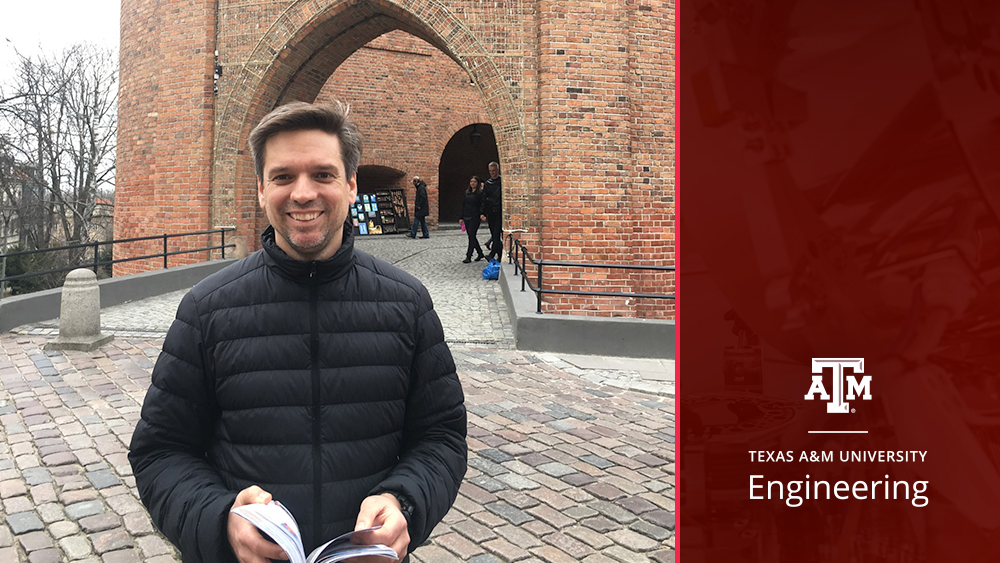
Alexander Maslowski '08 is providing an essential service to hospitals around the world in an unconventional way. As a senior manager at Varian Medical Systems, he is committed to researching algorithms and developing tools that aid in the fight against cancer.
Maslowski graduated from the Department of Nuclear Engineering at Texas A&M University, and began working for Varian Medical Systems upon graduation. At this time, the company focused on radiation physics and applying their research to accelerators. Accelerators can kill cancer cells while leaving healthy tissue intact.
"The accelerators have become elegant and complex compared to what they used to be in the 60s, 70s and 80s" said Maslowski. "What we've seen is that the more precise our technology is, the easier it is to put radiation into infected organs and tumors, as opposed to the patient's healthy tissue.”
Designing and creating accelerators is a high-risk, high-reward assignment. Due to the wide use of this equipment in hospitals, the accelerator's hardware and software must be precise to ensure product reliability and safety.
"There's a tremendous amount of time spent at the lab making sure everything is working properly," he said. "We support thousands of hospitals that use accelerators, with hundreds of new patients treated every year per hospital. These devices are used immensely, so if we make a mistake, people can get hurt.”
Since then, the company has expanded into crafting various technologies from machinery that uses artificial intelligence for their newest development, a contouring tool that can mask an organ's location and use this knowledge to optimize the treatment and avoid healthy tissue. The company researches algorithms, collects data and develops new software tools for applications that range from radiosurgery and radiotherapy to veterinary oncology.
"It requires precise work because we're working with people directly and indirectly," Maslowski said. "We are doing a lot of automation, collecting a ton of data and deploying new technologies, and I like the challenge of experimental work. There's a substantial overlap between algorithms, computing and experimental science."
Maslowski continues his success with Varian Medical Systems. He is incredibly thankful for the opportunities and lessons he learned as a nuclear engineering student at Texas A&M that laid the groundwork for him to excel in his career.
"The nuclear degree itself has a big impact," he said. "The mathematical and programming training combined is helpful. The engineering mind that comes with the degree is going to serve you no matter where you go. There is a professionalism that Texas A&M culture develops in its students. I appreciate this part of the education and the critical thinking skills I learned from the nuclear engineering department."